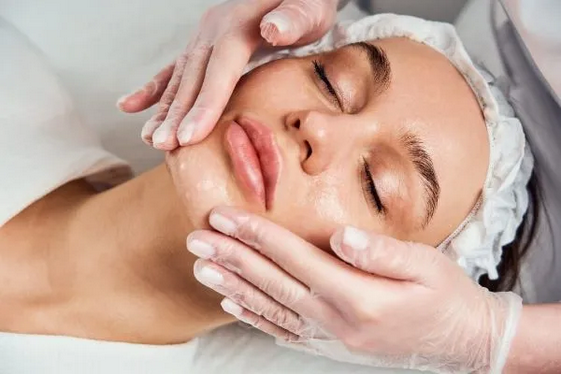Hyperpigmentation is a common skin condition that affects many individuals, leading to uneven skin tone and dark patches. This article explores the causes, types, and effective treatments for hyperpigmentation in birmingham, particularly in Birmingham, helping individuals better understand their options.
Understanding Hyperpigmentation
Hyperpigmentation occurs when certain areas of the skin produce excess melanin, the pigment responsible for skin color. This condition can arise due to various factors, including sun exposure, hormonal changes, and skin injuries. It manifests in various forms, such as age spots, melasma, and post-inflammatory hyperpigmentation.
Causes of Hyperpigmentation
- Sun Exposure: Ultraviolet (UV) rays from the sun can trigger melanin production, leading to sunspots and other forms of hyperpigmentation.
- Hormonal Changes: Conditions such as pregnancy or hormonal therapies can cause melasma, a type of hyperpigmentation that often appears on the face.
- Skin Injuries: Acne scars or wounds can result in post-inflammatory hyperpigmentation, where the skin darkens after healing.
- Medications: Some medications may cause skin discoloration as a side effect, leading to hyperpigmentation.
Types of Hyperpigmentation
Understanding the different types of hyperpigmentation can help individuals identify their condition better:
- Solar Lentigines: Often referred to as age spots or liver spots, these are flat, brown spots that appear on sun-exposed areas of the skin.
- Melasma: A common condition characterized by brown or gray-brown patches, usually occurring on the face. It’s often triggered by hormonal changes.
- Post-Inflammatory Hyperpigmentation: This occurs after skin injuries, like acne or eczema, where the skin darkens in response to inflammation.
Diagnosis of Hyperpigmentation
A dermatologist typically diagnoses hyperpigmentation through a physical examination of the skin. In some cases, further tests may be conducted to determine the underlying cause. Understanding the type and cause is crucial for effective treatment.
Treatment Options in Birmingham
Residents in Birmingham have access to various treatment options for hyperpigmentation. Here are some common treatments that can help reduce the appearance of dark spots and achieve a more even skin tone:
Topical Treatments
- Hydroquinone: A skin-lightening agent that reduces melanin production and is often prescribed for hyperpigmentation.
- Retinoids: These vitamin A derivatives promote cell turnover and can help fade dark spots over time.
- Vitamin C: An antioxidant that brightens the skin and reduces the appearance of pigmentation.
Chemical Peels
Chemical peels involve applying a solution to the skin that exfoliates the top layers, promoting the growth of new skin. This can effectively reduce hyperpigmentation and improve skin texture. Chemical peels are customizable based on the individual's skin type and the severity of hyperpigmentation.
Laser Treatments
Laser therapy can target and break down melanin in the skin, helping to reduce dark spots. Different types of lasers are available, and a dermatologist can recommend the most suitable option based on the individual’s skin condition.
Microdermabrasion
This non-invasive treatment exfoliates the skin using tiny crystals, which can help improve the appearance of hyperpigmentation. Microdermabrasion is often used in conjunction with other treatments for enhanced results.
Intense Pulsed Light (IPL)
IPL treatment uses light energy to target pigmentation and promote an even skin tone. It can be particularly effective for sun damage and other types of hyperpigmentation.
Natural Remedies
For those seeking natural alternatives, certain ingredients like aloe vera, licorice extract, and green tea have been suggested to help lighten hyperpigmented areas. However, results may vary, and it’s essential to approach these remedies with realistic expectations.
Preventive Measures
Preventing hyperpigmentation is often more manageable than treating it. Here are some helpful tips:
- Sun Protection: Regular use of sunscreen with a high SPF can prevent sun-induced pigmentation. Wearing hats and protective clothing also helps.
- Avoiding Tanning Beds: Tanning beds can exacerbate hyperpigmentation and lead to skin damage.
- Gentle Skin Care: Using gentle products and avoiding harsh scrubs can help maintain skin health and prevent irritation.
Consulting a Professional
Before starting any treatment, it's advisable for individuals suffering from hyperpigmentation to consult with a qualified dermatologist. A professional can assess the condition and recommend tailored treatment options that suit individual skin types and needs.
Conclusion
Hyperpigmentation can be a distressing condition, but with the right treatments and preventive measures, individuals in Birmingham can achieve clearer, more radiant skin. For those seeking effective solutions, Este Medical Group offers a range of advanced treatments designed to combat hyperpigmentation. By consulting with their experts, individuals can explore personalized options and take the first step towards healthier skin. If you're struggling with hyperpigmentation, consider reaching out to Este Medical Group to learn more about how they can help you regain your confidence.





Comments